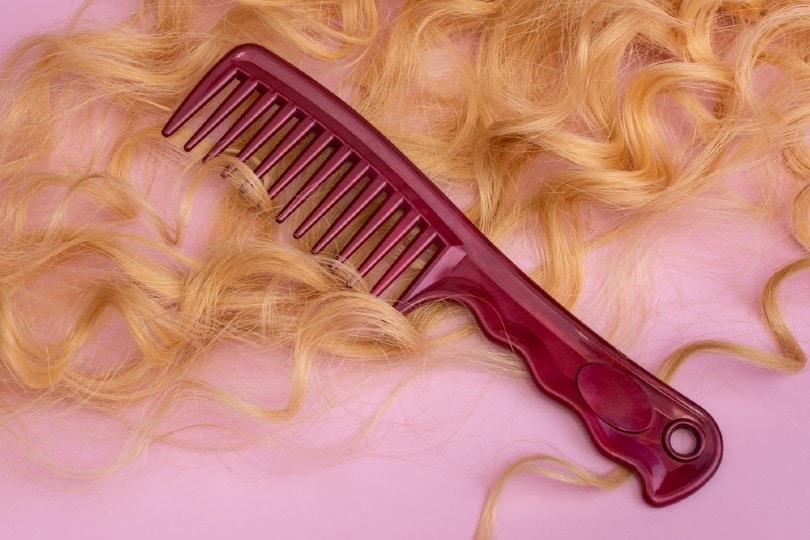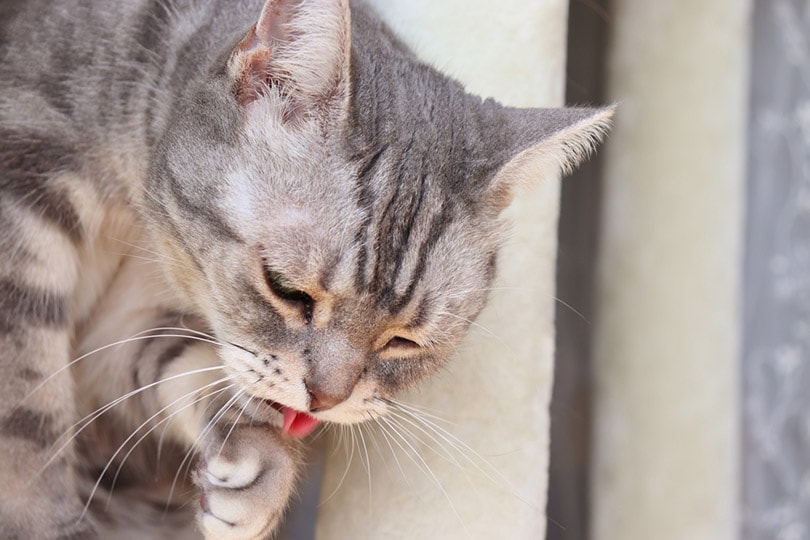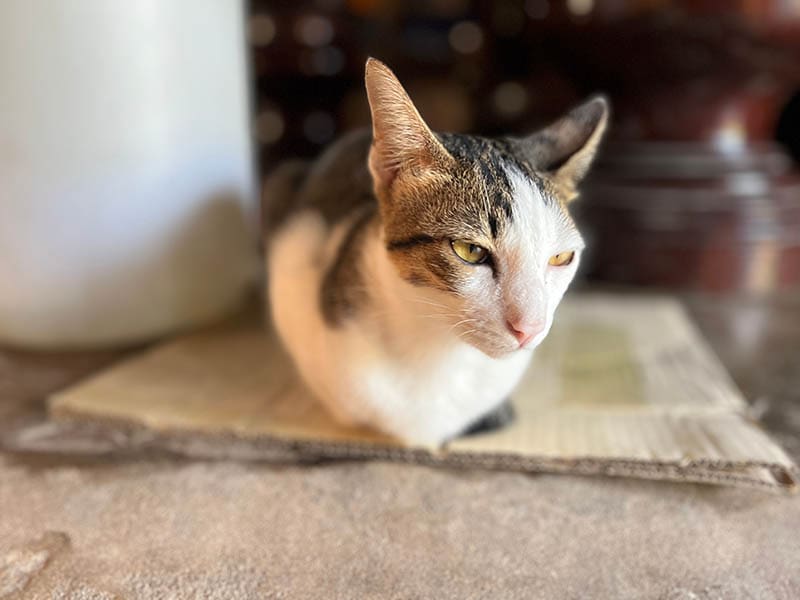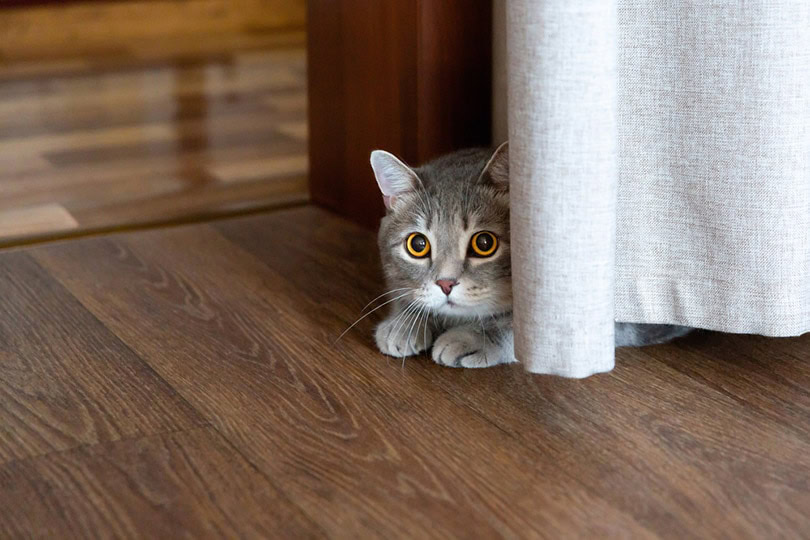VET APPROVED

The information is current and up-to-date in accordance with the latest veterinarian research.
Learn more »Click to Skip Ahead
Every cat owner knows cats are interesting and unusual creatures. Most march to their own drum, and some cats’ behavior is downright weird. Speaking of weird, have you ever noticed that something as simple as a comb can make some cats gag? Yes, you read that correctly. Some cats may gag when you run your fingers across a comb’s bristles or teeth because they have extremely sensitive hearing. Read on to explore this strange phenomenon in depth, but do not continue producing the same sound that’s causing your cat distress.

Why Does a Comb Make a Cat Gag?
You may have noticed viral videos on social media showing someone running their fingers down a comb’s bristles, followed by a cat gagging. The reason for this seems to be due to cats’ sensitive hearing.
Cats can detect high frequencies, and high-frequency vibrations can overstimulate your cat. Cats don’t seem bothered by combs while brushing, but they don’t care for fingers rubbing against the bristles.
Cats naturally have an incredible sense of hearing for hunting purposes and can hear high-pitched noises very well. Cats rely on their hearing and scent for hunting prey, and their hearing is fine-tuned. To put this more in perspective, cats have a hearing range of up to 85,000 hertz, whereas humans can hear up to around 20,000 hertz.1 The gist is this: any high-pitch or high frequency can stimulate your cat’s gag reflex.
Can a Comb Give a Cat a Seizure?
Unfortunately, a 2016 study came to the conclusion that older cats can, in fact, have a seizure from environmental stimuli with certain high-pitched frequencies.2 This is a type of epilepsy seizure known as Feline Audiogenic Reflex Seizures or FARS. Since you are now armed with this information, you should refrain from performing this little experiment with combs, especially if your cat is 14 years old or older.

What Other Sounds Can Make a Cat Gag?
The crinkling of aluminum foil and keys rattling can also trigger this bizarre reaction. Another way to put this phenomenon into perspective is to think how irritating it is for humans to hear nails down a chalkboard; that sound is equivalent to the sounds that make cats gag. Doesn’t sound pleasant, does it?
Are There Other Causes for a Cat to Gag?
The sound of fingers running down the teeth of a comb is not the only sound that will make your cat gag. Certain medical conditions can also cause a gag reflex, such as allergies, feline asthma, dental disease, respiratory problems, and hairballs. You should consult a veterinarian if you notice your cat gagging often, especially if no comb is present.

Summing Up
It may seem like a fun experiment to perform on your cat, but running your fingers down the teeth of a comb is not fun for your cat in any way, shape, or form. As we’ve mentioned, it’s the equivalent of nails running down a chalkboard to us humans; we all know that’s not pleasant.
Remember that combs are not the only reason your cat can gag. Certain medical conditions can cause gagging, too. If you notice your cat gagging often, seek the advice of your veterinarian or take your cat in for a checkup.
- How Well Do Cats Hear? | FirstVet
- The Five Senses According to Cats: Hearing
- Audiogenic reflex seizures in cats
- Feline Audiogenic Reflex Seizures (FARS) | International Cat Care
- Cats Retch at Comb Noise in Viral Video—Here’s Why They Hate It – Newsweek
- NEWStat – AAHA
- Asthma and Bronchitis in Cats | VCA Animal Hospitals
- Allergies in Cats | VCA Animal Hospitals
- Cat Gagging: Causes and What to Do | Veterinary Emergency Group
- Feline Dental Disease | Cornell University College of Veterinary Medicine
- Feline Upper Respiratory Infection | VCA Animal Hospitals
Featured Image Credit: chie hidaka, Shutterstock













2 Responses
Thank you so much for this information. I will admit I did try it and it worked on 2 of my cats but not on the other 3. So before I continued on with this I had to look into and make sure it wasn’t going to cause my babies any more discomfort or hurt them in any way. I thank you for providing this information.
Hello Misty,
thank you for your message. We are happy that you found the information in our article to be helpful for you cats. Of course, every cat is different, so what works on one doesn’t necessarily have to work on the other. It is important to watch your cats, get to know them and find out what they like/dislike.
Best wishes to all of you!